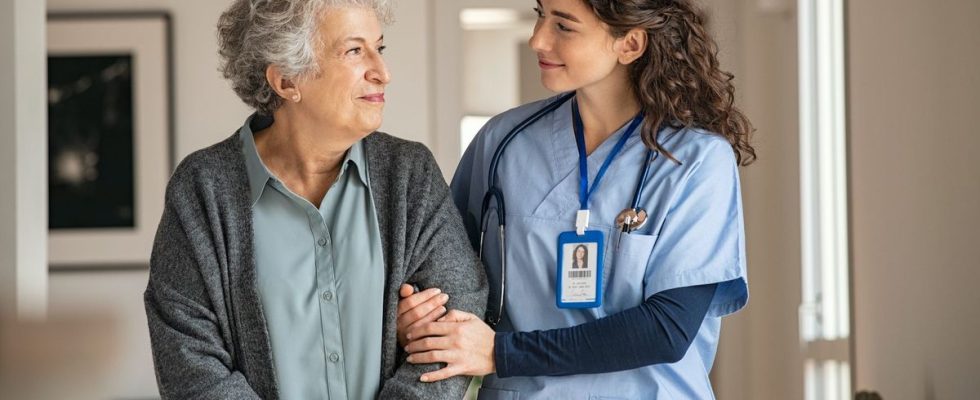Published on
Updated
Reading 3 min.
In an interview given to the Tribune on Sunday April 14, Frédéric Valletoux, Minister for Health, spoke of his wish to create nursing consultations. What does this change? The response from Frédéric Bizard, health economist.
The nursing profession apparently needed to be re-evaluated in a system where 6 million French people have difficulty consulting a doctor. This is undoubtedly why this Sunday, April 14 in La Tribune, the Minister Delegate in charge of Health and Prevention, Frédéric Valletoux announced that he wanted to put an end to the existing “discomfort”.
The minister intends to revise the obsolete nursing framework
“I wish to change the law, in order to broaden and clarify the skills of nurses, to create consultation in nursing care and to give them the right to certain prescriptions“, declared Frédéric Valletoux.
Concretely, in the minister’s own words, this means that nurses will be able to monitor chronic illnesses, such as diabetes, or even extend prescriptions, without the patient having to go through their doctor. “This must be done in conjunction with the attending physician but with additional autonomy and renewed confidence.” he indicates.
To date, only advanced practice nurses (APNs) already have the possibility of making prescriptions. However, this status which dates from 2018 “is not yet operational“, notes the Minister Delegate. “I am going to give a big boost to the publication of decrees so that all the implementing texts for nurses in advanced practice are taken before the summer”he promised.
Additional autonomy to improve access to care
Faced with the voices of doctors who could be raised, the minister nevertheless justified himself:
“The challenge is not at all to replace doctors but to fully recognize the roles and skills of each person, with the sole concern of improving access to care”, he insisted.
“This remains and will remain the control tower of the care pathway.” with the responsibility of coordinating teams in which nurses will benefit from “additional autonomy and renewed confidence”.
A “demagogic” announcement according to Frédéric Bizard, economist
This enthusiastic point of view is, however, not shared by Frédéric Bizard, health economist, contacted by Doctissimo. “We are very far from what is needed to get the health system out of its impasse and nurses would also be wrong to rejoice about it, because all of this is anti-liberal medicine demagoguery.”
The expert does not question the need to delegate certain tasks or that of allowing paramedics to carry out pre or post medical diagnosis assessments, but he highlights the problem of this misleading term consultation:
“We cannot say ‘I give consultations’ to nurses, it’s insulting. The notion of consultation is a clinical notion, and only the doctor can do it. To say that we are going to give consultations without specifying the nature is very demagogic and very populist.”
Really revalorizing the status of nurse
The other annoying problem with this announcement for our economist is the notion of revaluation. “And when you know the paramedical world you know that it is in great pain with actions that have not been updated for 40 years for some. What we need is not to try to please them, and to seduce them with publicity effects, but to ensure that their daily lives are better.”
Thus, the economist points out the absence of a financing announcement at the moment. “You will have to explain to me how the government can promise that we will finance consultations for the 130,000 city nurses, with what? Nothing is written on the subject. For this reason, the expert doubts whether the minister’s idea can really be implemented in reality.
However, he sees a solution that would suit everyone: “Let’s start by building real medical practices with sufficient numbers of paramedical assistants so that there is real collaboration rather than participating in this division.”
